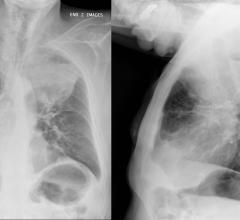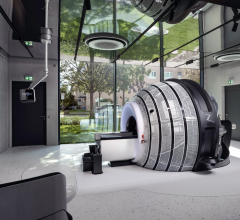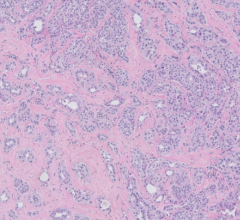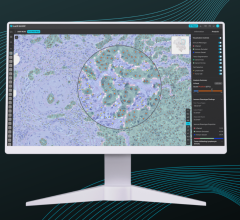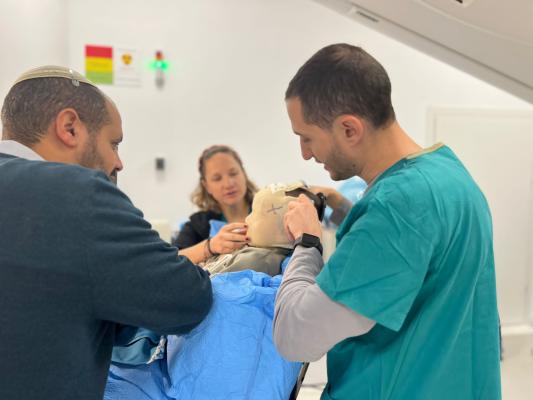
For the first time, a child with an ocular cancer is being treated using a proton therapy system designed to treat patients of all ages, and regardless of tumor location, in the seated position
January 26, 2024 — P-Cure continues its quest to successfully usher in a new era of clinical treatment with proton therapy. For the first time, a child with an ocular cancer is being treated using a proton therapy system designed to treat patients of all ages, and regardless of tumor location, in the seated position.
The fully operational P-Cure FDA-cleared system, located in it’s Israel-based Clinical Development Center and operated clinically by the Hadassah Medical Center, treated ‘D’ with a gantry-less system featuring personalized, adaptive, intensity-modulated particle therapy capable of fitting within existing Linac rooms, and now available to oncology centers at a significantly lower cost than any other available proton system.
Hadassah Medical Center, working in cooperation with P-Cure, “continues to make history by taking the initiative that could potentially save the sight and life of ‘D’, a 4-year boy diagnosed with cancer located near his eyes. The only viable solution, approved by the hospital’s Ethical Committee, was treatment with P-Cure’s surgically precise and targeted proton therapy,” said P-Cure CEO Dr. Michael Marash.
“In cooperation with P-Cure, we have now successfully treated 14 cancer patients, and in addition to ‘D’, we have two additional patients completing treatment. The P-Cure system demonstrates the clinical benefits of Proton Therapy emphasizing the importance of the patient’s comfort and quality of life as significant contributing factors to the positive clinical outcomes,” said Prof. Aron Popovtzer, the Head of Sharett Institute of Oncology at the Hadassah Medical Center.
‘D’ has seven siblings, and they and his parents were evacuated to alternative accommodations in the center of the Israel following the recent Hamas attack on their Kibbutz in the South. “D’s parents were faced with the difficult choice and decision to seek Proton Therapy treatment outside of the country. However, with the availability of the P-Cure Proton Therapy Solution, and considering the current circumstances, the family choose to stay in the country,” said Dr. Marash.
The treatment being delivered to Hadassah patients utilizes a unique feature of the P-Cure Proton Therapy System. It enables diagnostic quality imaging capable of tracking changes occurring in a patient’s body during the treatment, especially in the shape and location of the tumor, as well as the position of healthy tissues around the tumor site. As such, this system's versatility enables adjustment of the treatment plan in accordance with the new changing anatomy. This approach, called adaptive therapy, ensures that the treatment dose always covers the tumor without dangerous radiation to the healthy tissue and organs.
“D was treated in the seated position using a special booster seat. We added a camera to watch D’s pupil movement. The Radiation Therapy Technicians were communicating with ‘D’ during the treatment to support him to focus his pupil straight ahead. If there was movement, the treatment was paused. The treatment including CT and orthogonal x-ray verification took less than 10 minutes. No anesthesia was required. Four-year-old ‘D’ did his part very well, a most helpful patient,” said Dr. Marash.
Treatment of cancer with proton therapy is considered the gold standard for treating many types of cancer sites with unique clinical capabilities. However, current legacy technology requires proton equipment weighing 200 tons, and with a cost far exceeding $50 million per single room including equipment and construction. This has significantly limited the establishment of proton therapy services at most cancer care facilities globally and the availability of this crucial type of treatment to those in need. Until today, only less than 1% of hospitals offer proton therapy to their patients.
P-Cure significantly reduces the size and cost of the proton therapy equipment. “The P-Cure Solution fits within the space of conventional and existing Linac vaults. In many cases, our system virtually eliminates all construction costs, making the clinical benefits of proton therapy, as well as the benefits of a patient centric seated position treatment system, available to virtually all cancer treatment centers,” said Dr. Marash.
For more information: www.p-cure.com


 April 25, 2024
April 25, 2024 


